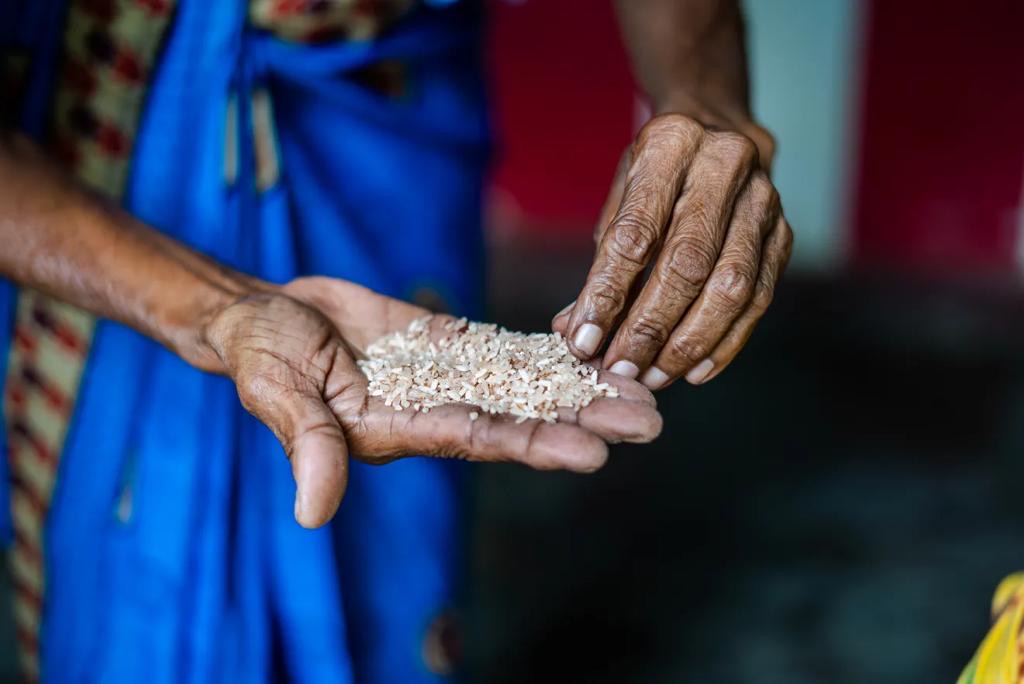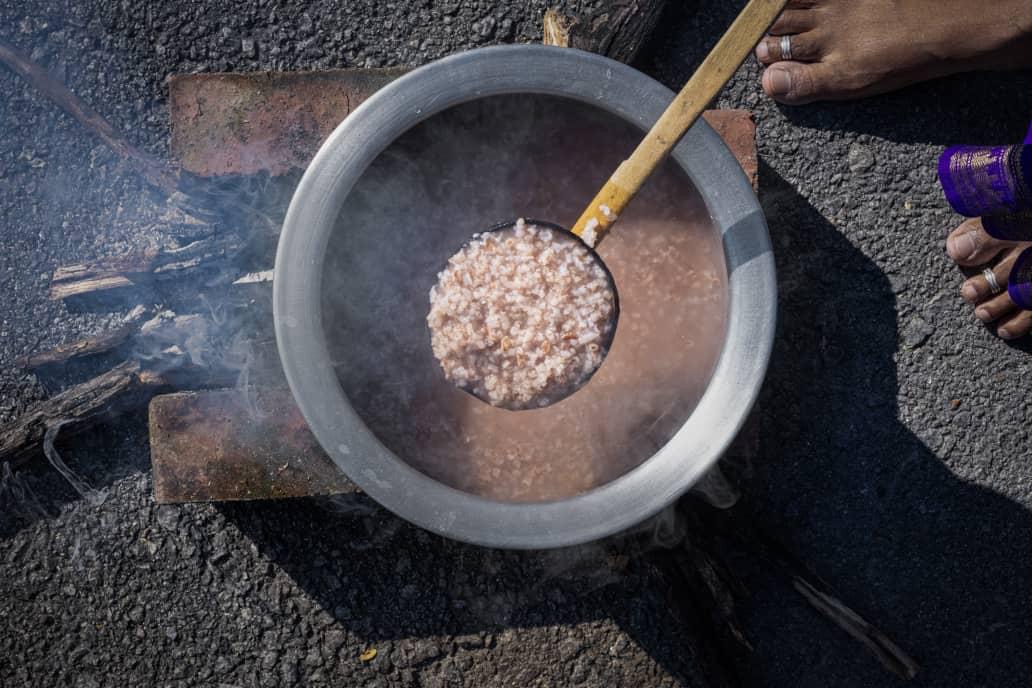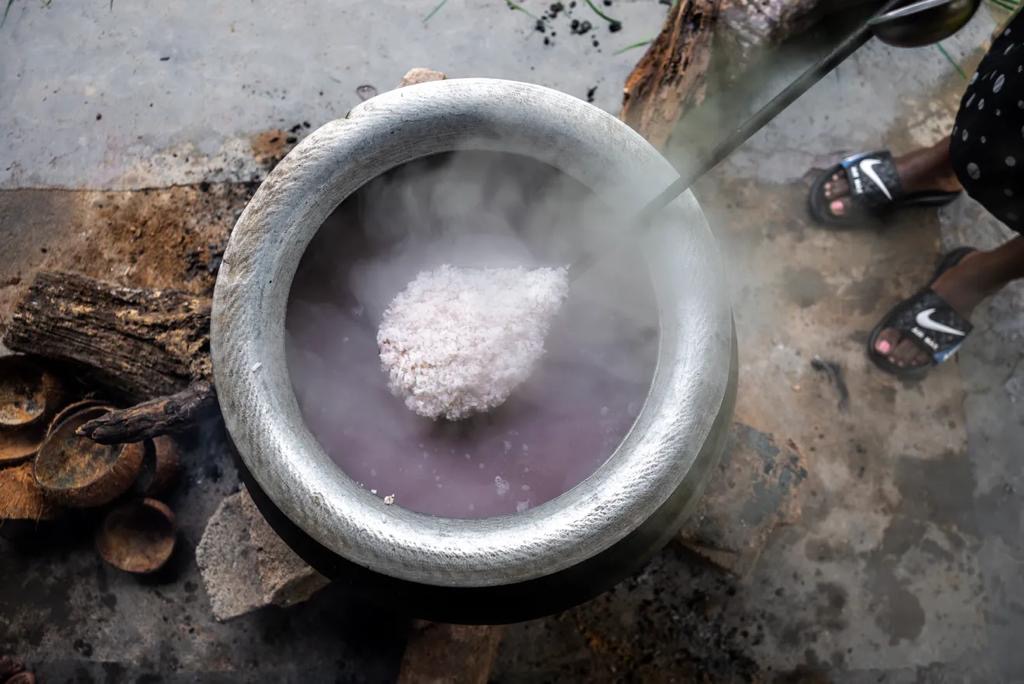IN a disturbing escalation of cultural suppression, Sri Lankan authorities are now targeting individuals for the mere act of preparing “kanji”, a simple Tamil dish.
This alarming development coincides with remembrances of the 2009 genocide of Tamils, suggesting an intent to stifle not just a community’s voice but also their culinary heritage.
Such actions underscore a brutal irony – a dish that symbolised survival during the darkest times of civil conflict is now a pretext for arrest.
This crackdown is not only a severe infringement on cultural expression but also a grave reminder of the unresolved wounds within Sri Lanka’s society.
The act of making kanji, once a source of sustenance in dire times, has now become a defiant act of remembrance, drawing the ire of authorities.
The horror of these arrests is a stark testament to the ongoing struggles faced by the Tamil community – a group still fighting for justice and recognition.
This reprehensible attempt to erase a cultural practice highlights the urgency of their plight and the world’s responsibility to acknowledge and address these continuing injustices.

Recent events in Sampur, Trincomalee, where several Tamils were arrested for distributing kanji in memory of the Mullivaikkal dead, illustrate a harsh reality.
Critics argue that these actions by Sri Lankan authorities – failing to differentiate between remembrance of lost civilians and unlawful glorification of combatants – severely harm reconciliation efforts and betray a lack of sensitivity towards a grieving community.
Minority rights activists and local videos, though not independently verified, suggest a scenario where law enforcement may have overstepped its bounds, arresting individuals during a non-violent act of commemoration.
Such measures not only deepen the wounds of those still mourning the losses from the civil war but also tarnish Sri Lanka’s international image as it struggles to promote a narrative of unity and democratic values.
In the tangled web of Sri Lanka’s culinary universe, there lurks a modest hero: kanji – a Tamil treasure that’s more than just food. It is a fist in the air, a symbol of guts and endurance in the face of turmoil.
Kumulamunai, a village outside of Mullativu where the fierce ocean slams into Sri Lanka’s shores, was where I first got a taste of kanji’s quiet rebellion. My grandmother, a wizard in her own right, served it in coconut shells, a humble yet profound offering.

Kanji is not just rice porridge. It was a lifeline and is a tale of survival for the Tamil folks, especially during the brutal civil war years. In times of fear and scarcity, this simple concoction of rice, water, and salt became a beacon of hope. The irony.
This journey of mine began in Mullativu, the very place where I had my first spoonful of kanji and, poetically, where the war drew its last breath.
My auntie, Rani Sithi, whose spirit is as unbreakable as our community’s, still lives there. She survived the 2009 war. She shared: “When bombs rained and despair loomed, kanji was our sustenance, filling both bellies and hearts.”
Her eyes, mirroring the flames of her cookfire, spoke volumes.
Kanji’s evolution from a mere meal to a badge of defiance is tightly woven into the Tamil struggle in Sri Lanka. Post-independence, ethnic tensions surged – and the Tamils, marginalised and oppressed, found solace in their culture, with kanji at its core.
For us, kanji is more than food – it is a statement of identity and resistance.
Amidst the ruins of war, in refugee camps, Tamil families shared kanji, a dish needing little but offering much.

Across the globe, the Tamil diaspora holds onto kanji – not just as a link to their roots but as a symbol of their unbroken spirit.
But kanji’s story is not just about the past, it is a living testament to the Tamil community’s resilience and their ongoing fight for justice.
In Sri Lanka, cooking Kanji is both a tribute to the fallen and a way to keep their fight alive.
As I sat with my aunt and neighbours in Kumulamunai over steaming bowls of Kanji, I saw the essence of the Tamil spirit – resilient, nurturing, and profoundly human. This culinary tradition carries the scars of conflict but also the hope for a harmonious future.
Kanji, in its modesty, reflects the complex saga of the Tamil people in Sri Lanka – a tale of war and peace, despair and hope, loss and survival.
And as dusk falls over Mullaitivu, the simmering pots of Kanji stand as a testament that even the simplest of meals can bear the weight of history and the unyielding spirit of a people. – May 20, 2024
Abbi Kanthasamy is an entrepreneur, published photographer, and writer whose work is inspired by his global travels.
He is the founder of the Michelin-recognised Sri Lankan restaurants Aliyaa and Nadodi. Explore his portfolio at www.abbiphotography.com

